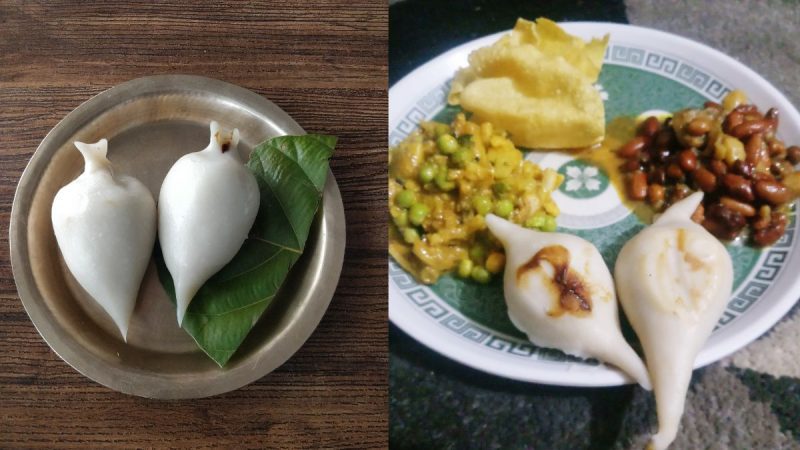Yomari, a delicacy deeply embedded in Nepalese culture, is more than just a sweet treat. It’s a culinary symbol of prosperity and happiness, especially among the Newar community of the Kathmandu Valley.
What’s Yomari?
The Newari ethnic group makes steamed sweet rice dumplings known as Yomari. The name, Yomari derives from two words in the Newari language: “Yoh,” meaning ‘to like,’ and “Mari,” meaning ‘bread.’ According to legend, the dish originated in the village of Panauti, where a farming couple first created it after a bountiful harvest. They offered their creation to the gods, who were so pleased that they blessed the couple with prosperity. This legend underscores Yomari’s association with abundance and good fortune. Additionally, it has a high energy content and is delicious. It is created with rice flour dough filled with chaku (black treacle, molasses).
The Yomari Punhi festival celebrated on the full moon day of the month of Thinla (November-December), is the most significant occasion for preparing Yomari. With its rice flour exterior and sweet filling, the dish symbolises the culmination of the year’s hard work in the fields and the hope for prosperity in the coming year.
How Is It Prepared?
The preparation of Yomari is a meticulous process that requires patience and skill. The primary ingredients include rice flour, which forms the outer shell, and a sweet filling made from chaku (a type of molasses). It includes a mixture of sesame seeds, coconut, and sometimes khuwa (a type of milk solid). While the traditional Yomari is filled with chaku or sesame, modern variations have emerged, especially in urban areas, where creative cooks experiment with different fillings and flavours.
In Kathmandu, there are now restaurants and cafes that specialise in this dish, offering an array of innovative fillings alongside the classic versions. The Village Café is a Newari-run café on Pulchowk Road in Patan that offers a nearly limitless selection of Newari meals and snacks. It’s one of the few locations where you can always order Yomari. The handcrafted nibbles come with an assortment of conventional and unconventional fillings: Khuwa yomari are filled with dried condensed milk, raisins, cashews, and coconut; masala yomari are loaded with masala spices. Chaku yomari are filled with molasses and sesame paste. There’s also a chocolate yomari that has chocolate inside and on top, and a yomari Sunday, which includes almonds and ice cream, builds on that.
Its sweet, comforting taste is a reminder of the joys of harvest, the warmth of family, and the richness of Nepali traditions. So, have you tasted this yet?
Cover image credits: Wikimedia Commons

